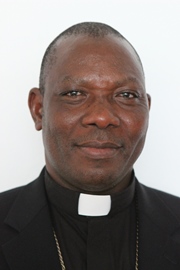|
Bishop of Maiduguri in Northern Nigeria: "Boko Haram is a product of corruption" In spite of the permanent threat of acts of terrorism by the Islamist terrorist group Boko Haram, the faithful in the Northern Nigerian Diocese of Maiduguri "are very brave and have no fear," the Bishop of Maiduguri, Oliver Dashe Doeme, declared to the international Catholic pastoral charity Aid to the Church in Need (ACN). Although his diocese is severely affected by the attacks on Christians, he said, the faithful nevertheless “very courageously give open witness to their faith.” Even shortly after terror attacks on churches, the people still came “in great numbers” to attend the religious services. The loyalty of his priests is also “a great encouragement” to him, the Bishop said. “Despite constant mortal danger and threats, our priests stay in their parishes and continue to perform their service,” he explained. The number of people taking up the vocation is also gratifying. In the seminary of Maiduguri there are currently 30 seminarians. Just recently, eight priests were ordained in his diocese. The Bishop described Boko Haram as “a product of corruption.” In order to achieve peace it was therefore necessary to combat the corruption that is prevalent in the country and to provide perspectives for the youth. Certain groups, in his view, can manipulate those young people who lack a perspective, whereas young people with a place in society are not so easy to misuse for the ends of others. “If I told someone to ‘go and kill,’ those young people who have a place in society would not do it,” the Bishop said. He pointed out that Nigeria is a country rich in resources, yet the corruption as well as the one-sided concentration of the economy on oil extraction while other sectors of the economy, especially agriculture, are not fostered, represent serious disadvantages for the West African country. There is great need for action here. Major challenges for the Church in Northern Nigeria, according to Bishop Doeme, lie in the rebuilding of churches and ecclesiastical buildings after terror attacks as well as in the pastoral care of widows and orphans. |
|
|

